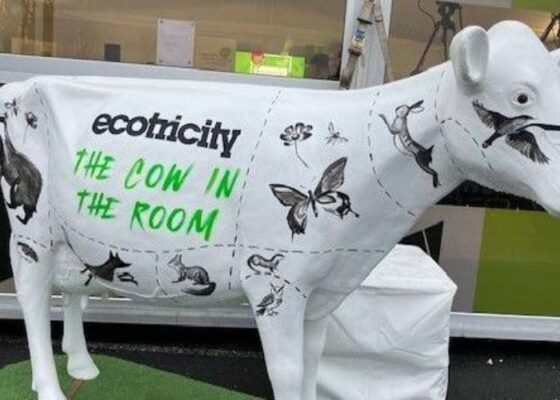As a passionate vegan advocate with over 7 years of experience promoting plant-based diets, I was thrilled to learn that a major Labour party donor is pushing for meat to be removed from school meals in England. Henry Dimbleby, co-founder of the Leon restaurant chain, was commissioned by the UK government to review school food standards and recently published a national food strategy that calls for more plant-based options in schools. Read below about “Labour Donor Pushes to Remove Meat from School Meals in England”.
As many of us know, shifting cultural norms around food is not easy. The backlash was swift, with Prime Minister Boris Johnson stating that he will not support imposing mandatory veganism on children. But I believe this is a vitally important conversation that gets to the heart of our values around health, climate change, and animal welfare.
Table of Contents
Benefits of Plant-based Diets
The benefits of plant-based diets for human health are well established. Study after study has linked meat consumption, especially processed and red meat, with increased risk of heart disease, diabetes, and certain cancers. As rates of diet-related diseases continue to climb, what children eat matters. Plant-based meals are naturally lower in saturated fat and higher in fiber. Serving more veggies, fruits, whole grains and plant proteins in schools would provide nutrition without the health risks.

Implications
There are also huge implications for the planet. Animal agriculture accounts for nearly 15% of global greenhouse gas emissions. Beef production alone uses up 23% of arable land worldwide, and livestock rearing is a leading cause of deforestation and biodiversity loss. Experts argue that reducing meat consumption, along with curbing food waste, is one of the most impactful climate actions we can take as individuals. Teaching children sustainable eating habits can nurture a generation of eco-conscious citizens.
From an ethical standpoint, I believe our food choices reflect our values. Factory farming subjects billions of thinking, feeling animals to horrendous cruelty. Chickens, pigs and cows suffer intense confinement, brutal mutilations and untimely deaths. As evidenced by increasing public concern over animal welfare, there is a growing sense that this systemic abuse is unacceptable. Young people in particular are at the forefront of advocating for a more compassionate food system.
The Debate Over Mandatory Veganism
Some argue that mandatory veganism goes too far in restricting personal choice. However, children already cannot choose to eat nuts, shellfish, or other common allergens at school. Certain dietary limitations are accepted for safety. Given the well-documented risks of excessive meat consumption, removing it from the default menu seems prudent, while still allowing it as an opt-in choice.
Critics also contend that plant-based diets may not provide adequate nutrition for growing kids. As a vegan, I am very focused on getting proper nutrition from non-meat sources. With a little education and meal planning, schools can easily provide plant-based options that are high in protein, iron, calcium and other essential nutrients. The key is offering balanced, appealing meals, not just removing meat and replacing it with starchy sides.
Success Stories and Overcoming Obstacles
Some schools are already pioneering meatless menus with great success. In my city of London, St Mary’s Primary went vegetarian in 2017. Students tried dishes like bean chili, vegetable curry and lentil bolognese. The head teacher reported increased uptake of school meals and less food waste. Up north in Leeds, Brudenell Primary removed meat and saw skyrocketing demand for school lunches. These schools partnered with local chefs to create nutritious, kid-friendly meatless meals.
From speaking to fellow vegans who are parents, the challenge is not necessarily objections from kids. Children are actually quite open to new foods and flavors. The bigger hurdle is overcoming the mindset of many adults that a meal is not “complete” without meat. This belief persists even though cultures around the world have traditionally built meals around plant-based staple foods. With more education and exposure, these biases can evolve.
Investing in the Future
Shifting away from meat-centric diets requires patience, compassion and listening to the concerns of all sides. As a food blogger, I strive to share easy plant-based recipes and meal plans that are realistic for busy families. My approach is to inspire and empower people with the tools to incrementally incorporate more veggies, fruits, beans, lentils and whole grains into their daily meals.
Small, gradual changes are key to lasting transformation. The proposal to remove meat from school menus has stirred controversy precisely because it challenges the status quo. But it has opened up a discussion that I believe is long overdue. With creativity and commitment, schools can nurture the next generation to make food choices that are better for their bodies, the planet and animals.
Conclusion
Our eating habits are deeply ingrained, but not immutable. As an optimist, I believe that we can change. Using my platform to highlight the benefits of plant-based eating is my way of creating a healthier, more ethical and sustainable food system for all. What we feed our children is an investment in the future we want to see. I hope you like reading “Labour Donor Pushes to Remove Meat from School Meals in England”.

With over 4+ years of experience in promoting vegan lifestyles and a Master’s degree in Nutrition and Food Science, our author brings a blend of academic expertise and real-world insights to Wandering Vegans. Passionate about health, sustainability, and travel, they provide practical tips and authentic experiences for vegan living. Connect on Instagram @wandering_vegans_ and Facebook Wandering Vegans for the latest updates and inspiration.

